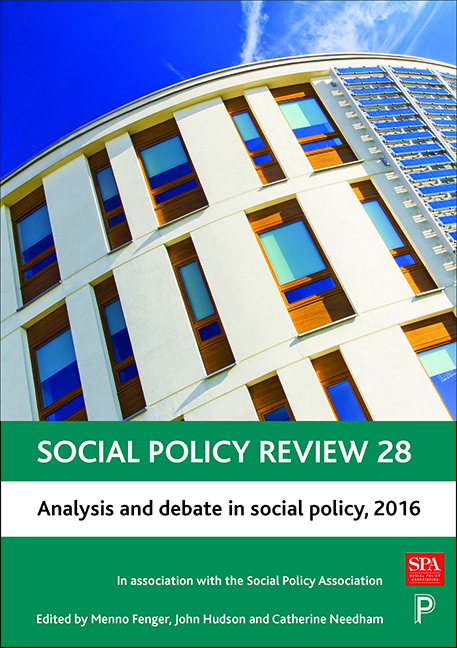Part Three - Individualised budgets in social policy
Published online by Cambridge University Press: 05 April 2022
Summary
The shift to individualised funding is a trend within a range of social policy sectors and across many countries. This is evident in the move to personal budgets in adult social care and personal health budgets in the English NHS, as well as the trialling of individualised funding for rough sleepers, for parents of children with special educational needs and for adoptive parents (Needham and Glasby, 2014). Scotland is developing its own version of self-directed support, with an individualised budget element, and many countries already offer so-called ‘cash for care’ schemes (Manthorpe et al, 2015).
Contributions to this themed section explore these changes in different international settings, and also explore the validity of the underlying assumptions, which have driven the shift towards greater use of individualised funding. Individualised funding can have a range of justifications – is it about giving citizens ‘the power of the purse’ to stimulate a better range of support services; is it about empowering citizens as autonomous choice agents, within a rights agenda; is it about challenging ‘expert knowledge’ and downgrading professionalism; is it about transferring risk and responsibility to the users of services, while masking funding cuts and reductions in support? It is useful to explore how far these perspectives are borne out in the experiences and outcomes of people receiving budgets and those working to support them.
The chapters in this section offer a range of empirical lenses through which to examine these debates. For Purcal et al it is the emerging context of the National Disability Insurance Scheme, a new approach to disability support that is being piloted in Australia. For Brown it is in the context of individualised financial support for people who are homeless, drawing primarily on a study undertaken in Wales. The chapter by Karen Jones and colleagues reports findings from a national evaluation of the personal health budget pilot programme in England, funded by the Department of Health. Christensen's chapter discusses the user-controlled personal assistance scheme in Norway. In Locke and West's chapter, they explore individualised budgets for older people in England, taking a feminist ethic of care approach.
Across these different territories and services, there are a number of similar insights: that rights-based approaches based on freeing people up to make financial choices risk underestimating the relational context within which people experience care and make choices.
- Type
- Chapter
- Information
- Social Policy Review 28Analysis and Debate in Social Policy, 2016, pp. 169 - 172Publisher: Bristol University PressPrint publication year: 2016

